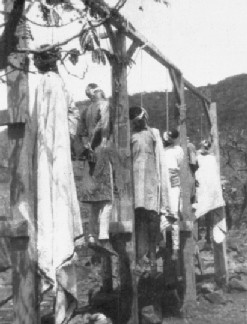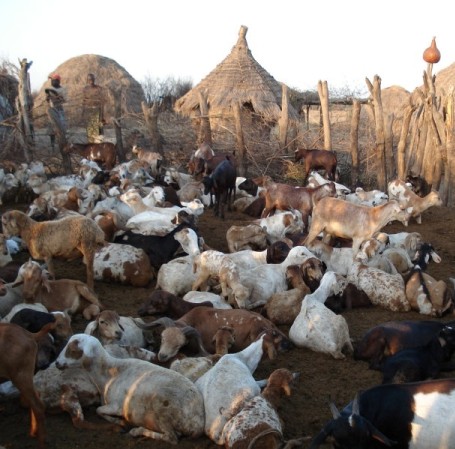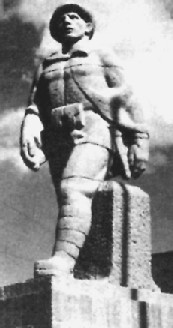|
Ethiopia Politics | Society | Culture - Arts Ethiopia "surprised" by fascist monuments in Italy
Monuments and street names in South Tyrol, or Alpine northern Italy, are still idealising the "Alpini", Italy's historic elite mountain warfare soldiers that headed the brutal Italian attack and occupation of Abyssinia - later Ethiopia - in 1935. Especially, an Alpini monument in the town of Bruneck (Brunico) raised by the fascist regime of Dictator Benito Mussolini, is causing controversy and strongly surprised the Ethiopian Ambassador on a recent visit.
Not only the Alpini monument in Bruneck commemorates the Italian attack on Ethiopia. Also in the regional capital, Bolzano, a column praising the unlawful war still stands in close vicinity to the city's large victory monument. Also in Bolzano, streets are still named after the locations of war crimes in Ethiopia and after those who committed them - such as Via-Amba-Alagi and Via-Pater-Giuliani. In the course of a cordial two-hour talk, "the Ethiopian ambassador showed surprise at the fact that monuments glorifying the crimes against his people are still to be found in Southern Tyrol," according to the Schützenbund. "Even though the Ethiopian people has forgiven the Italian occupiers, they will never forget," Mr Abay was quoted as saying. "The past is the past," he however added. Mr Abay was given much documentation of the presence of fascist monuments and names commemorating the attack on Ethiopia, which he promised to hand over to the President of Ethiopia, Girma Woldegiorgis, and his Prime Minister, Meles Zenawi. By chance, Ethiopian President Woldegiorgis had fought together with British units against the fascists during World War II. Paul Bacher from the Schützenbund explained that "one is still expecting the Italian state to distance itself unmistakably from past ideologies. A first step in that direction would be the removal of all fascist remnants in the country." Neither in Ethiopia, nor in Italy, have the wounds of the Italo-Abyssinia
On 3 October 1935, Mussolini started his attack on Ethiopia, and thereby also World War II, as the Abyssinian Empire was a full-fledged member of the League of Nations. The attack of Ethiopia served Italy and Nazi Germany as a test for further warfare, as cruel tactics such as the air dropping of poison gas was practiced. The British physician, John Melly, head of the British Red Cross in the war-zone, thus reported horrified and outraged: "This is no war, not even a bloodbath, this is the torture of ten thousands of defenceless men, women and children by bombs and poison gas." The delegate of the International Red Cross, Marcel Junod, described what he had experienced as eyewitness: "Everywhere there are lying people. Ten thousands … on their feet, on all limbs I see horrible, bleeding burns." The cruel attacks on civilians were committed by the Alpini elite forces. Other atrocities committed by the Alpini in Ethiopia included systematic rape, torture and looting, in addition to the methodical slaughtering of the Ethiopian elite. The planned charges for war crimes against Italy in an International Court were dropped because Italy switched over in time to the winning side during World War II. Italy paid Ethiopia US$ 25 million in total as compensation for the attack and occupation and never issued an apology. By staff writer © afrol News - Create an e-mail alert for Ethiopia news - Create an e-mail alert for Politics news - Create an e-mail alert for Society news - Create an e-mail alert for Culture - Arts news
On the Afrol News front page now
|
front page
| news
| countries
| archive
| currencies
| news alerts login
| about afrol News
| contact
| advertise
| español
©
afrol News.
Reproducing or buying afrol News' articles.
You can contact us at mail@afrol.com










